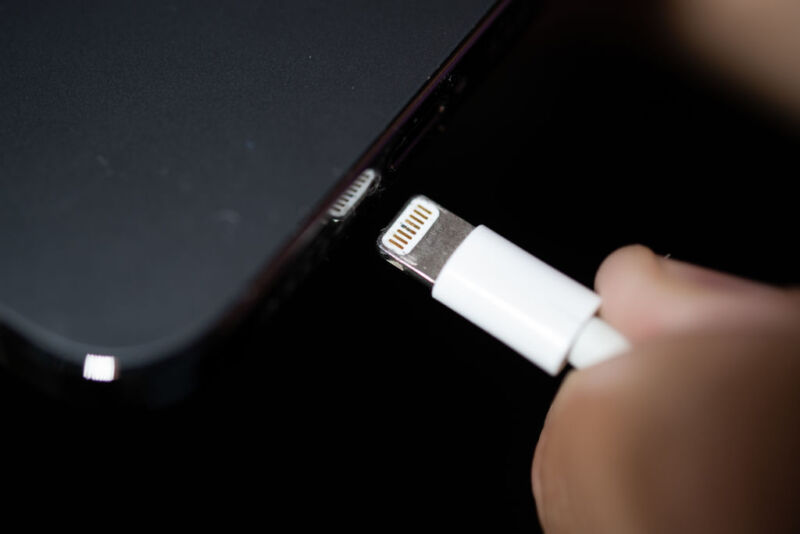
USB-C has won the war on charging in the European Union (EU). As of December 28, 2024, smartphones, tablets, and numerous other consumer devices that charge over a cable will have to support USB-C charging in order to be sold in the region. That means the clock is ticking on Apple's Lightning, the most prominent company resistant to the USB-C takeover.
As announced by the European Parliament Committee on Internal Market and Consumer Protection and the Official Journal of the EU's Twitter accounts today and spotted by The Verge, the EU's USB-C legislation is published in the Official Journal. The law goes into effect on December 27 and requires compliance by 2024.
The legislation will first affect smartphones, tablets, digital cameras, headphones, headsets, earbuds, portable speakers, handheld video game consoles, e-readers, keyboards, mice, and portable navigation systems. In April 2026 it will apply to laptops.
According to the EU's directive, the legislation "simplifies the use of radio equipment and reduces unnecessary waste and costs" and is "necessary, in particular for the benefit of consumers and other end users."
It notes that despite a drop in the variety of charging device types over the years, the EU government remained unsatisfied regarding e-waste production and consumer convenience and is interested in "avoiding fragmentation of the market for charging devices."
USB-C era
A European universal charger law has been in the works for over a decade and picked up serious steam in September 2021. The legislation's publication cements a frustrating countdown for Apple, which has long resisted a move to universal charging.
In 2009, when Micro USB was crowned the charging connector of choice agreed upon by smartphone makers, Apple went rogue, as reported by Engadget, in favor of its Lightning port. And if Apple had its way, a government body wouldn't be directing how its products charge come December 28, 2024, either.
Apple has argued that moving what it says is 1 billion devices off its Lightning cable will be disruptive to consumers and create a vast amount of e-waste—ironically, exactly the opposite of what supporters say the requirement will enable.
"Governments get to do what they're gonna do, and obviously we'll have to comply," Greg Joswiak, Apple's senior vice president of marketing, told The Wall Street Journal's Tech Live conference in October.
"We have no choice, as we do around the world, to comply to local laws. But we think the approach would've been better environmentally and better for our customers to not have a government be that prescriptive."
If we were to nitpick here, compliance could, technically, mean several things for the iPhone. But signs mostly point to Apple releasing an iPhone with USB-C. A report from Bloomberg earlier this year pointed to a USB-C iPhone potentially arriving as early as next year. It remains unconfirmed if that means the Lightning port will be killed off in other geographies, or even the EU, immediately.
However, USB-C's relentless seizure of consumer devices—including mass adoption and increasing power delivery capabilities and the advancement of specs like USB4—is only gaining the connector more popularity. This isn't indicative of the norm, but a DIY USB-C iPhone selling for $86,001 shows there's interest in the connector uniting with Apple's smartphone.
Further, universal charging may be something Apple will have to deal with outside of the EU one day. Brazil is considering a USB-C law, and some politicians are pushing for universal charging in the US, too.
Circumnavigating the USB-C requirement by making iPhones depend on wireless charging isn't an ultimate solution either. Besides the technical obstacles associated with that, it seems the EU has its eyes on mandating that as well, saying in its directive that this "should in the future also be considered."
For what it's worth, the EU has said that it's open to adapting its legislation around new types of wired charging technologies as well, though some still fear the law could limit innovation.
One way or another, it seems our time with the 10-year-old Lightning port is dwindling.
reader comments
245 with